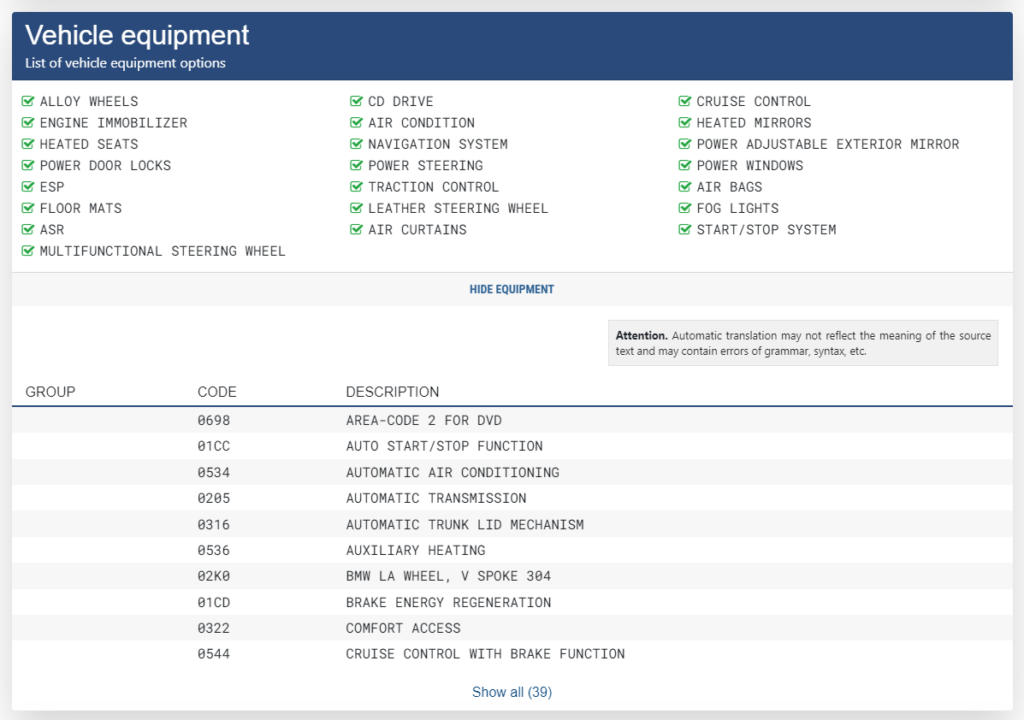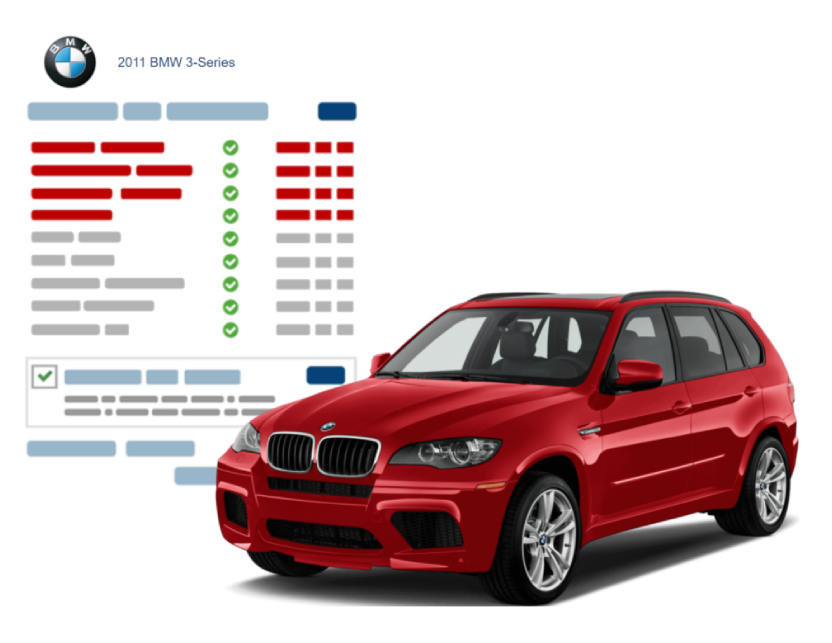
Purchasing a used car often involves many unknowns. The vehicle’s history, its actual technical condition, and the completeness of its equipment are elements that can significantly influence the purchase decision. Thanks to modern tools, such as the vehicle history report offered by Automoli, it is possible to thoroughly verify the car’s condition before its purchase. The VIN number, which is the vehicle’s unique identification number, becomes the key to uncovering the full history of the car, including a detailed list of its equipment directly from the manufacturer.
What is the VIN number and why is it so important?
The VIN (Vehicle Identification Number) is a 17-character code that uniquely identifies each vehicle. It not only facilitates the identification of the car but also stores information about its history, equipment, manufacturer, and place of production. The VIN is like the vehicle’s DNA – unique and unrepeatable for each specimen, making it an invaluable tool in verifying the history and equipment of a car. Read more about checking vehicle history by VIN
How to check a car’s equipment using the VIN number?
Using the VIN number to check a car’s equipment is a simple process, but it requires access to the appropriate databases. Vehicle history reports, such as those offered by Automoli, provide detailed information about the vehicle’s equipment, based on data provided by the manufacturer. Entering the VIN number on the service’s website allows for quickly obtaining a report, which presents not only the equipment list but also the service history, any damages, and many other useful pieces of information.
Why is it worth checking a car’s equipment before purchasing?
Knowing the exact equipment of a car allows for a better assessment of the vehicle’s value and its technical condition. Additionally, comparing the equipment list with the seller’s offer enables the detection of any discrepancies or modifications that could affect the purchase decision. By checking the equipment through the VIN report, the potential buyer can avoid unpleasant surprises and invest in a vehicle that fully meets their expectations.
Read more Top 5 car dealer tricks and scams
What information does the Automoli vehicle history report contain?
The vehicle history report offered by Automoli is a comprehensive source of information about the car. It contains not only the complete list of the car’s equipment according to the manufacturer’s data but also the service history, information about any accidents, damages, and data concerning previous owners. Such a detailed report allows potential buyers to thoroughly acquaint themselves with the technical condition and history of the vehicle, which is a key element in the decision-making process of purchasing.

Cases when checking a car’s equipment is essential
Checking a car’s equipment using the VIN number is particularly important when purchasing premium vehicles, where the equipment list significantly affects the car’s value. Also, when buying used cars from an uncertain source, where the risk of purchasing a vehicle with hidden defects is greater, the VIN report is an invaluable tool for verification. In situations where the vehicle was imported or has a rich service history, checking the equipment and history of the vehicle allows for a full understanding of its value and technical condition.
Summary and conclusion
Checking the equipment and history of a vehicle using the VIN number is an essential step for anyone considering the purchase of a used car. The vehicle history report offered by Automoli allows for a thorough examination of the technical condition and equipment of the car, providing the potential buyer with full transparency and security of the transaction. With access to reliable information directly from the manufacturer, the buyer can make an informed choice, minimizing the risk of unforeseen expenses and increasing satisfaction with the purchase.
FAQ
1. How frequently is the equipment and history data updated on Automoli.com for a given vehicle?
At Automoli.com, we source vehicle history and equipment information in real-time as it becomes available from our data providers. However, it’s important to note that there can be delays in updates, as different suppliers update their databases at varying intervals. This means that while we strive to provide the most current and comprehensive data, the timing of updates can vary. Before finalizing a purchase, we always recommend having the vehicle inspected by a mechanic to verify its condition beyond the historical data provided. The equipment list in our report reflects the vehicle’s factory specifications and is not updated with any changes or modifications made after it leaves the factory.
2. Can the VIN number reveal aftermarket modifications or non-original equipment installed by previous owners?
While Automoli.com provides comprehensive details about a vehicle’s factory specifications and equipment based on its VIN, aftermarket modifications or non-original equipment installed by previous owners may not be reflected in our reports. Our service focuses on manufacturer-provided data and documented changes. For modifications that don’t have official records or weren’t reported to insurance companies or relevant databases, we recommend a physical inspection to verify any aftermarket additions or changes.
3. What should I do if the vehicle’s actual equipment doesn’t match the Automoli.com report?
If you notice discrepancies between the vehicle’s actual equipment and the information provided in the Automoli.com report, it’s important to first verify the VIN to ensure it matches the vehicle in question. Misalignments could be due to data entry errors, unreported changes, or inaccuracies in the manufacturer’s records. For significant differences, it may also be prudent to discuss these findings with the seller to resolve any potential misunderstandings or misrepresentations before proceeding with the purchase.
4. What are the potential legal implications of selling a car with an incorrect equipment list?
Selling a car with an incorrect or misleading equipment list can lead to serious legal implications for the seller, including accusations of fraud or misrepresentation. In many jurisdictions, knowingly providing false information about a vehicle’s condition or features to a buyer can result in penalties, fines, or even litigation. Sellers are advised to accurately list the car’s equipment and disclose any known issues or discrepancies to avoid legal issues and ensure a transparent transaction.







